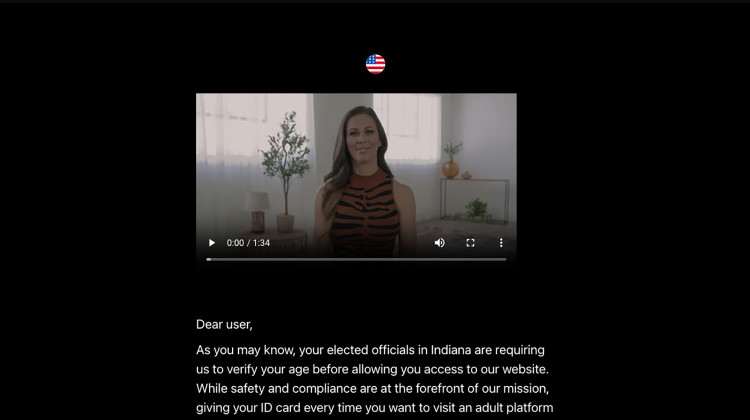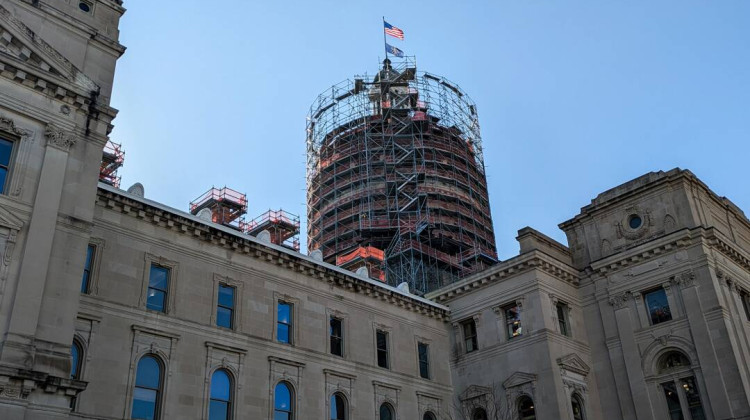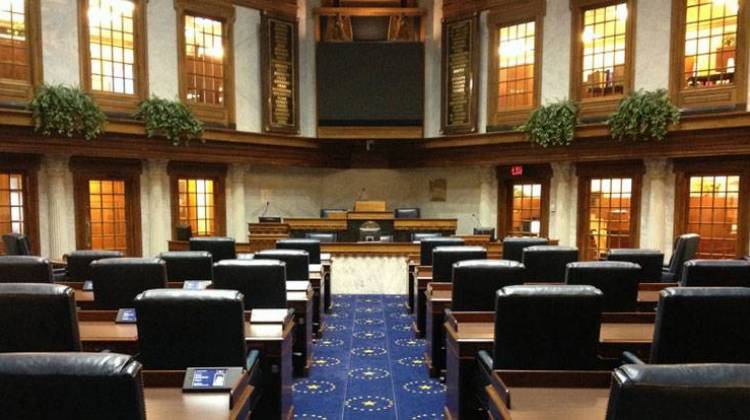
Some adult websites, including Pornhub, blocked access to their sites to users in Indiana ahead of the new age verification law from taking effect.
Screenshot of PornhubAn Indiana law requiring stricter age verification for adult websites will not take effect July 1 after a federal judge halted the law Friday, ruling it is likely unconstitutional.
The law, SEA 17, said sites on which at least one-third of their images and videos are “material harmful to minors” must verify their customers’ ages with a mobile driver’s license or government ID — which Indiana doesn’t provide — or through a third-party age verification service.
A group of adult websites and their trade association, the Free Speech Coalition, sued the state earlier this month.
Federal Judge Richard Young said the law likely violates the First Amendment.
In his ruling, Young said the measure fails in part because it is likely ineffective, in part because the technology used to identify someone’s location — IP addresses — is imprecise.
“The Attorney General has not submitted any evidence suggesting age verification would prohibit a single minor from viewing harmful materials,” Young said.
The law also carves out many other websites — news organizations, internet providers and search engines.
READ MORE: Pornography websites sue Indiana over new law requiring stricter age verification
Join the conversation and sign up for the Indiana Two-Way. Text "Indiana" to 765-275-1120. Your comments and questions in response to our weekly text help us find the answers you need on statewide issues, including our project Civically, Indiana and our 2024 legislative bill tracker.
Young said there are better methods for shielding kids.
“If Indiana were truly interested in protecting minors from seeing adult content, it would have imposed age verification requirements wherever those images are found, not by selectively determining which websites displaying adult content present the most danger,” Young said.
Young said a “superior” solution is filtering and blocking technology, which the adult websites suggested in their lawsuit.
Also, Young writes that the law’s arbitrary use of the one-third standard makes it difficult for even adults to view constitutionally protected content. He posed a hypothetical about a blog that discussed legislation to promote better sexual health resources to adult performers that included just one image of an adult performer.
“Even though 99 percent of the blog is core political speech, adults would be unable to access the website unless they provide identification because the age verification provisions do not trigger based on the amount of total adult content on the website, but rather based on the percentage of images (no matter how much text content there is) that contain material harmful to minors,” Young said.
The attorney general’s office relied in its arguments in part on a recent court decision from the federal 5th Circuit Court of Appeals. That panel allowed Texas to keep a very similar age verification law in effect.
Young said that decision explicitly ignored U.S. Supreme Court precedent and he refused to do so. His ruling relied heavily on Supreme Court cases from two decades ago.
Brandon is our Statehouse bureau chief. Contact him at bsmith@ipbs.org or follow him on Twitter at @brandonjsmith5.
 DONATE
DONATE






 Support WFYI. We can't do it without you.
Support WFYI. We can't do it without you.